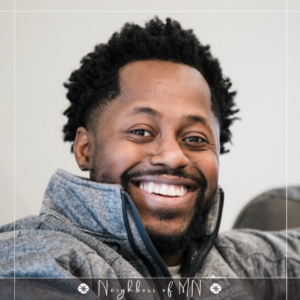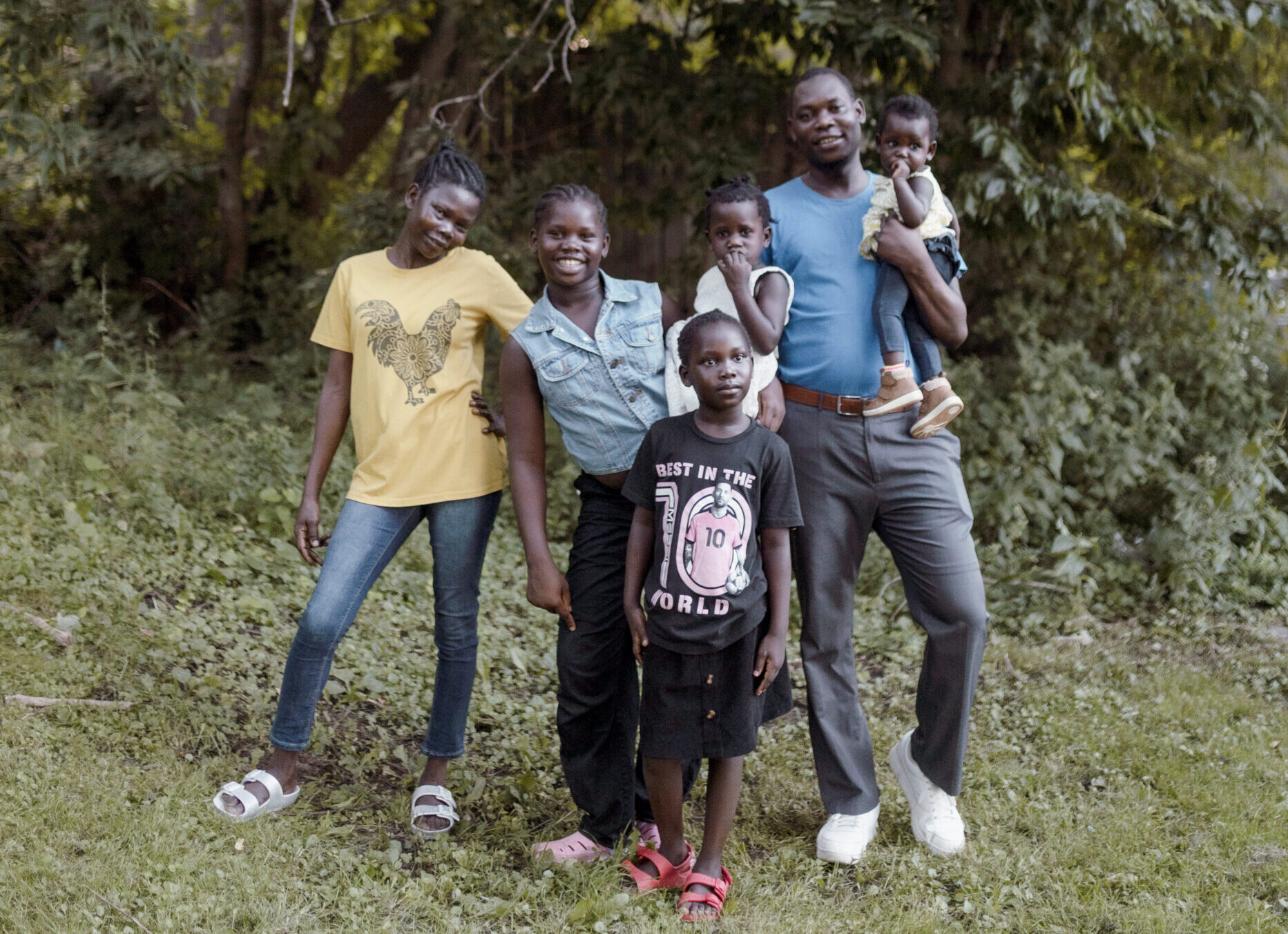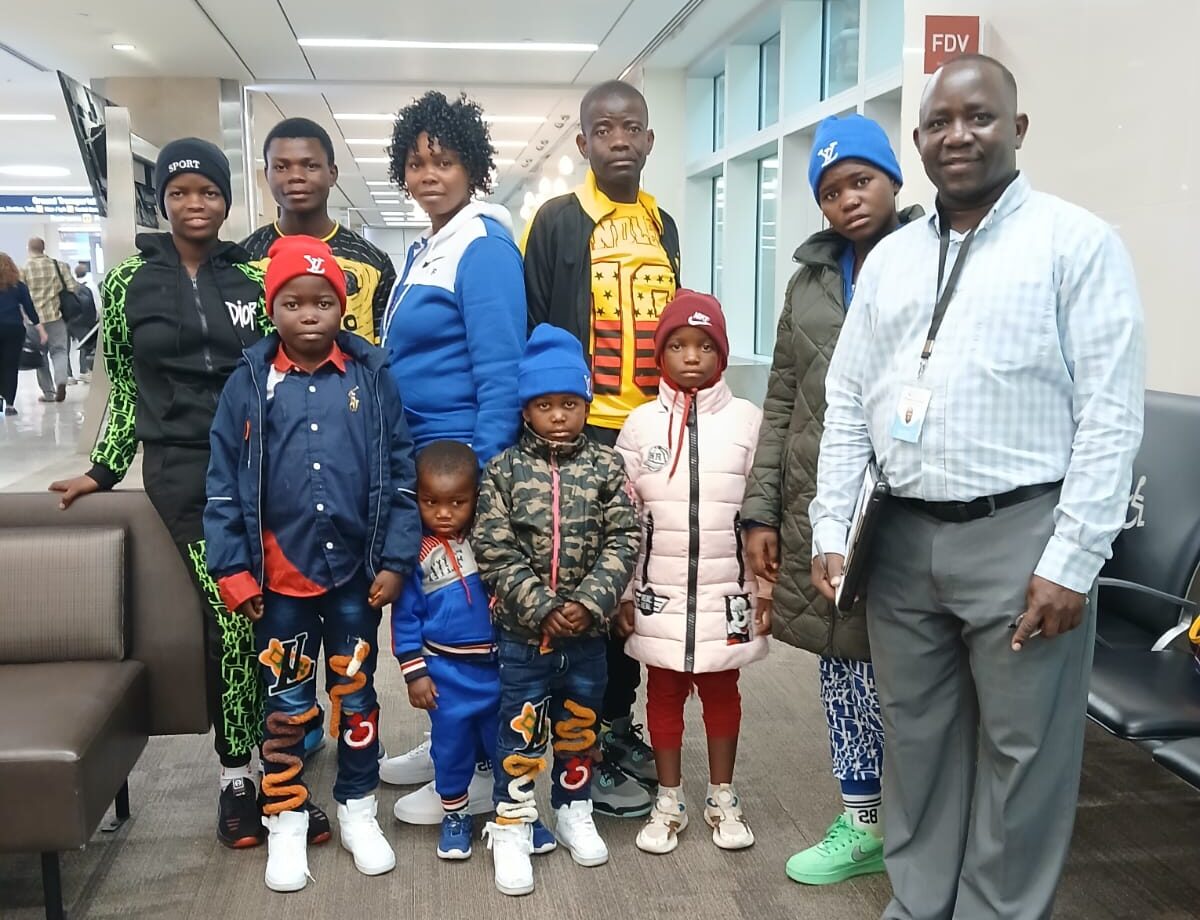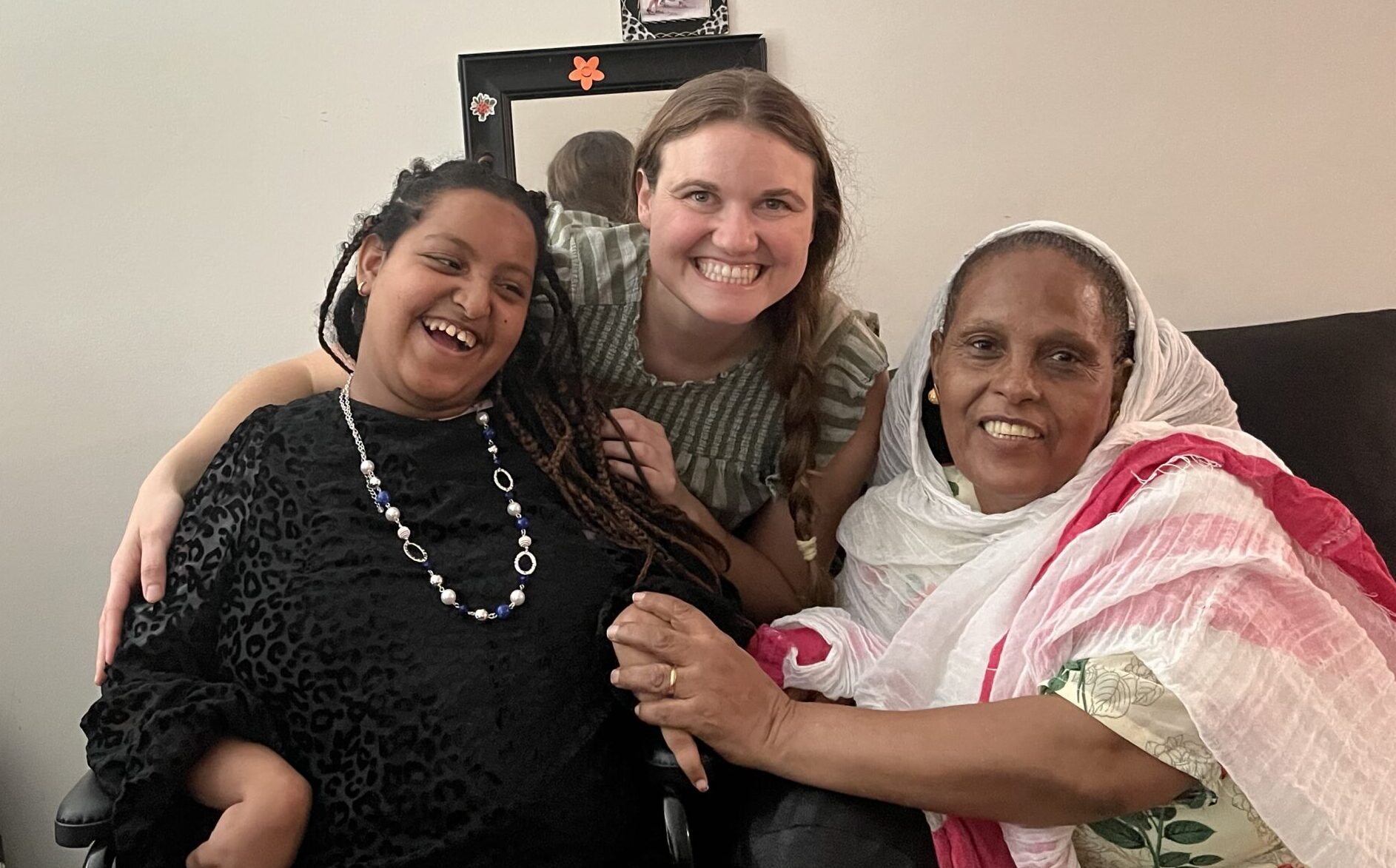Neighbor of MN
Abe
It felt like someone had left the freezer open, I was like “what the heck?” It was below zero, and I thought I was going to die.
“I flew into Minneapolis from Liberia in a t-shirt, sandals and a rain jacket, as it was the rainy season in Africa. It was not the appropriate clothes for a Minnesota winter, as I landed in December of 2004. It was terribly cold. It felt like someone had left the freezer open, I was like “what the heck?” It was below zero, and I thought I was going to die. I had never experienced a cold that extreme. We saw people in big, puffy jackets, and when the cold hit me, I realized why everyone had those jackets on. It was an eye-opening experience. The change in climates was shocking. We were coming from the West Coast of Africa where 6 months of the year it is hot, and the other 6 months of the year it rains cats and dogs.
In Liberia my mom worked at a big American-run hospital, and in 1998 she got an opportunity to come to the United States for further training. My mom left the country right before the civil war broke out. She was a nurse and was in the United States on Liberian Temporary Protected Status. She was here alone working as a nurse for 7 years before we joined her.
My entire upbringing was influenced by the civil war there. Some nights we slept in the bathtubs due to bullets flying through the walls of our home
When my mom left for the States, we were living in Liberia with my dad. My entire upbringing was influenced by the civil war there. Some nights we slept in the bathtubs due to bullets flying through the walls of our home. Other nights my dad would come into my room and tell me I had 15 minutes to grab whatever I could grab, and get out of the house. We would hide in trunks, to escape and head to a safer part of the country away from the rebels.
By early 2004 we had the opportunity to apply to come to the U.S. I was 13 when my brothers and I came on a (B2) visitor’s visa, which expired after one year. I went to High School in Oakdale and graduated from Tartan High School. I love Minnesota.
I fled a civil war and had lost everything so it makes sense that I didn’t bring all of the “proper” paperwork.
My Liberian passport expired in September of 2005. I applied for asylum three times but each time I got denied because I didn’t have the sufficient documentation. I fled a civil war and had lost everything so it makes sense that I didn’t bring all of the “proper” paperwork.
I was living as an undocumented immigrant until 2012, when the Obama administration passed DACA (Deferred Action for Childhood Arrivals). My application was finally approved under DACA. That meant I could get a driver’s license, a social security card, and I was authorized to work. I was paying taxes, working and living my life.
I am 32-years-old, I grew up here; but every 2 years I was reminded of the uncertainty of being here under DACA. I had to reapply, pay $480 each time, and come in for an interview, and still they could deny me. My wife is from Cannon Falls, MN. I didn’t want to have her file for me, I had been on this journey to become a resident for so long, I wanted to do it on my own. Once we had children, I knew I couldn’t parent them from afar. My wife and I had all of these conversations about the possible scenarios if I was deported back to Liberia.
Walking on egg shells became normal in a way.
Every two years I would hug my kids and kiss my wife, and tell them, “If you don’t see me, it means I got deported.” For the past ten years that was my life. Walking on egg shells became normal in a way.
Under the Trump administration, some of the Temporary Protected Status programs were shut down, and if the DACA program was shut down, I could have been deported. The uncertainty was terrible, and a constant stressor for me and my wife.
In 2019 the U.S. government passed the Liberian refugee act, and through that I was able to apply for my permanent residency card.
When I interviewed for my Green card, the people at United States Customs and Immigration Services (USCIS) had a file on me the size of the dictionary. It was overwhelming! They asked me so many questions about the civil war. They knew things about me and my family that I never told them. I didn’t get an answer that day and was told to check the USCIS website in the next couple days.
We both felt a sense of relief we hadn’t known in years.
Their decision regarding my permanent residency would be posted one way or the other.
I was on the USCIS website pressing refresh every few minutes until June 1, 2021. At exactly 10:44PM the website updated and said “Your application has been approved. Your new card will be mailed to you.” I immediately called my wife on Facetime to show her what the screen said. She bawled her eyes out. We both felt a sense of relief we hadn’t known in years.
A week later it came in the mail, and I paused feeling a “this is it” moment. It took 16.5 years to get my green card. I had been waiting for so long. It said “US permanent resident.” That little plastic card was the key to my future, the key to security for my children. All these years, not having that little plastic card kept me from pursuing my dreams.
The restrictions are gone, and the options are endless… Everything has opened for me! It is so surreal, and I am so grateful for these new opportunities.
I have no excuses now. The restrictions are gone, and the options are endless. I can come and go from the country to visit my parents in Africa or take my wife on the honeymoon we never had. I can apply for any job I want or even go back to school because I am now eligible for financial aid. Everything has opened for me! It is so surreal, and I am so grateful for these new opportunities.
My current job is a reentry coordinator at Damascus Way in Rochester, I work with men the moment they get out of prison, helping them with housing, and getting a job. We work alongside them so they don’t go back to prison, aiming to stop the prison pipeline. Six men from my caseload have successfully completed the reentry program through Damascus Way. Some days can be rough, but the end goal is to help people change their lives. Having the opportunity to come here and help somebody is what it is all about.
My next goal is to apply for citizenship and become an immigration lawyer. It would be so powerful to sit across the table from someone and tell them “I understand”, and really mean it.”
Abe works as a reentry coordinator at Damascus Way, which is an affiliate ministry of Arrive Ministries.






